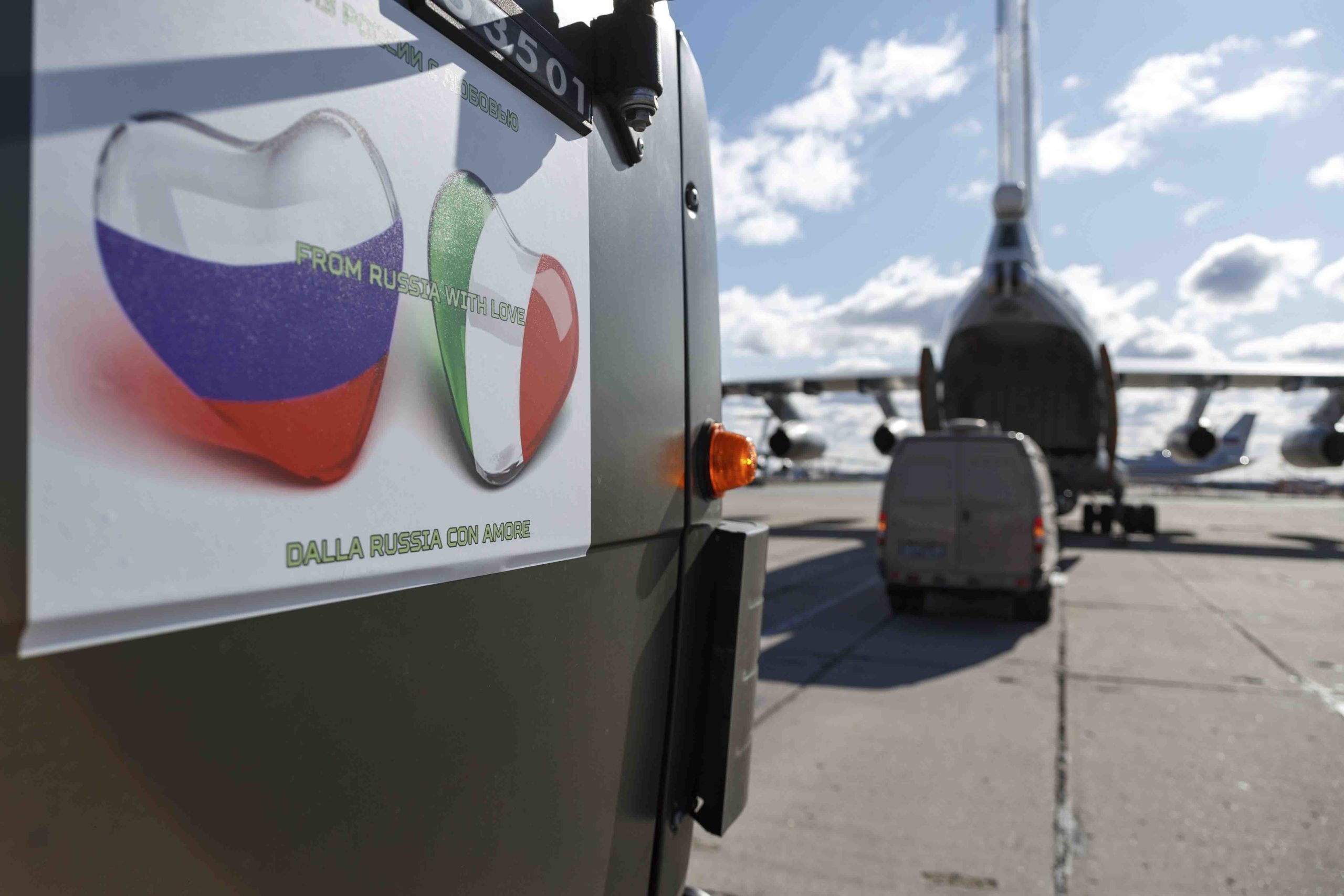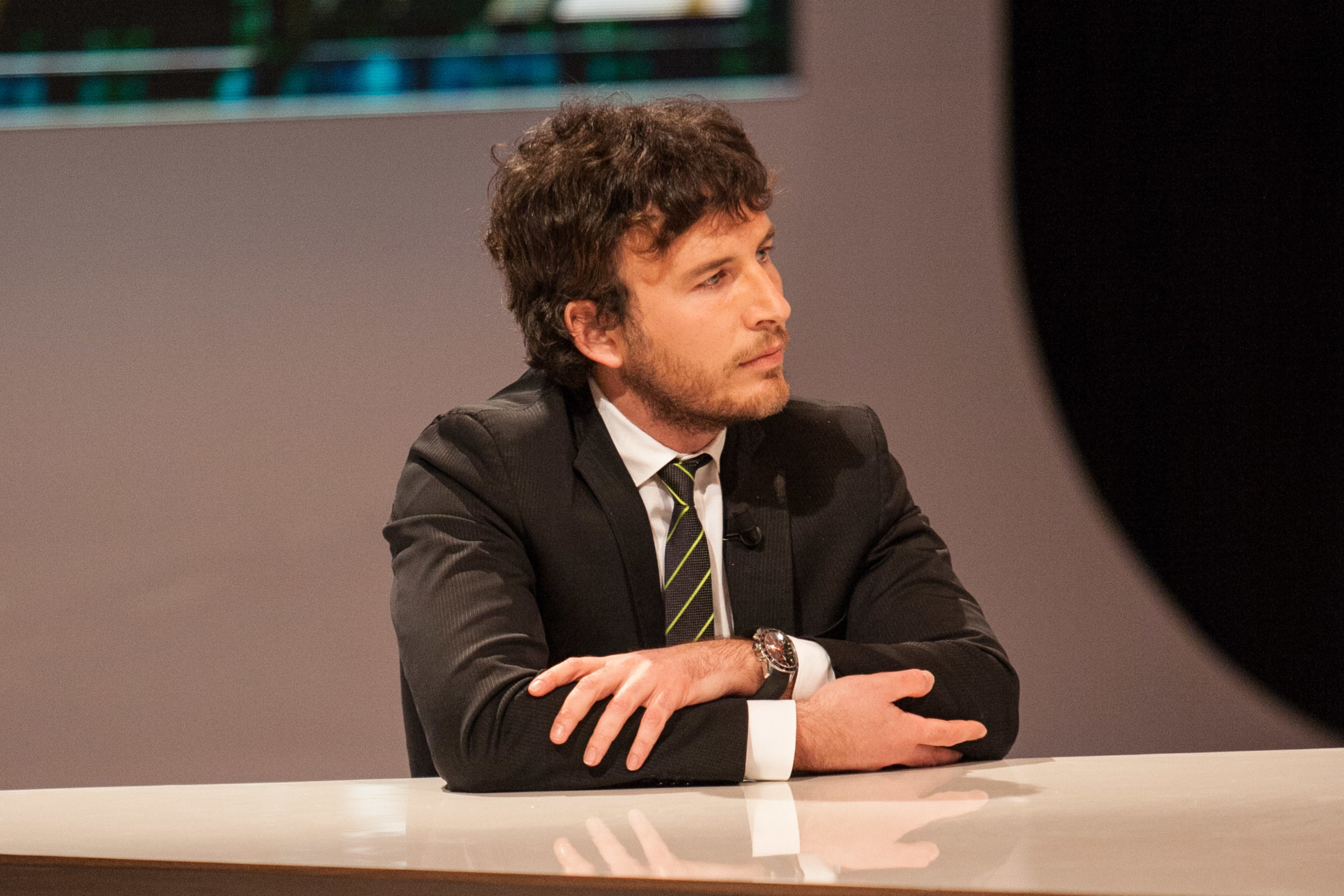 The Coronavirus Pandemic and Russian Information Warfare Activities in Italy
The Coronavirus Pandemic and Russian Information Warfare Activities in Italy
Luigi Sergio Germani, Director of the Gino Germani Institute for Social Sciences and Strategic Studies
28 April 2020
The Kremlin appears to perceive the coronavirus pandemic not only as a threat to Russia’s public health and national security but also as an opportunity to advance its geopolitical interests and objectives by enhancing its information warfare efforts both at home and abroad. Europe, Italy in particular, has become a key target of pro-Kremlin propaganda that seeks to exploit the coronavirus crisis.
One of the main narratives targeting European publics is that the EU is failing to handle the health crisis and is collapsing as a result. Another key message is that liberal democracies are incapable of dealing with the pandemic and are failing to protect their populations, while authoritarian regimes such as Russia and China are dealing effectively with the crisis.
The short-term goal of Moscow’s coronavirus-related information operations in Europe is to have the EU’s sanctions against Russian lifted. However, the Kremlin also appears to be convinced that the COVID-19 crisis can be exploited to advance Russia’s long-term geopolitical goals in Europe: (1) to damage and potentially destroy the EU by undermining solidarity among its members; and (2) to progressively weaken NATO and reduce the role of the US in providing European security.
The assessment that the Russian leadership is using the pandemic to enhance information confrontation efforts against the EU and NATO has been disputed by some analysts, but it is supported by evidence of a substantial increase in pro-Kremlin coronavirus-related propaganda targeting European audiences, in particular Italy.
Italy, a country that has been severely hit by the pandemic, is perceived by Moscow as the weak link in the EU (for years many Italian have blamed the EU for Italy’s economic decline and are inclined to support populist and Eurosceptic parties) as well as in NATO.
It is therefore not surprising that pro-Kremlin information operations targeting coronavirus-stricken Italy have recently been intensified. The Kremlin-controlled outlet Sputnik Italia has spread a variety of propaganda messages that aim to fuel anger against the EU, NATO and the United States by accusing them of failing to help Italy in its desperate fight against the epidemic, while presenting Russia as an alternative ally and true friend.
 Moscow achieved a propaganda coup with the arrival on 22 March of 9 Ilyushin aircraft carrying decontamination and medical equipment and over 100 Russian military experts, mostly specialists in biological warfare, sent to support Italy in its fight against the coronavirus pandemic: an operation dubbed “From Russia with Love” by the Kremlin. The images of 22 Russian military trucks moving across Italy powerfully reinforced the idea that NATO and the EU have abandoned the country in its hour of need.
Moscow achieved a propaganda coup with the arrival on 22 March of 9 Ilyushin aircraft carrying decontamination and medical equipment and over 100 Russian military experts, mostly specialists in biological warfare, sent to support Italy in its fight against the coronavirus pandemic: an operation dubbed “From Russia with Love” by the Kremlin. The images of 22 Russian military trucks moving across Italy powerfully reinforced the idea that NATO and the EU have abandoned the country in its hour of need.
Soon after the arrival of Russia’s coronavirus aid, pro-Moscow and anti-EU videos and memes started circulating widely online in Italy. One particular video, posted on 23 March, showed an Italian businessman replacing the EU flag with the Russian one and showing a sign saying “thank you Putin”. It went viral on Facebook.
At the same time Sputnik Italia increasingly emphasized narratives about the EU and EU member states’ lack of solidarity with Italy. One article, for example, claimed that Poland did not allow the Russian aircraft carrying aid to Italy to fly through its airspace. Poland’s Foreign Ministry promptly denied closing its airspace to Russian aid for Italy and reported it had received no request for access from the Russian military. The Sputnik Italia article received 107,800 engagements online over three days.
In addition, Sputnik Italia published editorials that predicted the imminent “end of the EU” as a result of the latter’s failure to cope with the coronavirus pandemic.
The outlet, moreover, sought to foment anti-German and anti-French sentiment among Italians. Some articles, for example, not only claimed that Germany and France failed to help Italy in a time of dire need, but also suggested that these two neighbouring states were attempting to take advantage of Italy’s present weakness in order to acquire its most prized industrial assets.
Pro-Kremlin information operations in Italy appeared to be proceeding effectively in the days following the arrival in the country of the Russian military delegation and coronavirus aid. However, Moscow was greatly upset when a leading Italian daily newspaper, La Stampa, beginning on 25 March, published several articles which posed a series of serious questions about the real motives behind the “From Russia with Love” operation and reported that, in the opinion of unnamed Italian officials, the Russian aid was mostly of limited value to Italy’s efforts to fight the epidemic.

The Russian Ministry of Defence spokesman subsequently issued a statement accusing La Stampa of spreading Russophobic disinformation. The MOD statement also contained thinly veiled threats against the newspaper and against Jacopo Iacoboni, the author of the articles. Sputnik Italia then published a piece that sought to discredit Iacoboni by accusing him of being a “specialist in spreading the germs of Russophobia, a highly infectious disease”, but failed to address the issues raised by the La Stampa articles.
Sputnik Italia has also spread narratives that endorse “alternative truths” about COVID-19. One article, for example, claimed that in reality coronavirus is not more serious than a normal flu. Another argued that coronavirus has been well-known for years and a cure and vaccine exist. Such messages obviously seek to undermine the public’s trust in Italy’s national government authorities, the national health system, scientific experts and international organizations such as the World Health Organisation (WHO).
On the other hand, Sputnik Italia, which increasingly seeks to appeal to mainstream Italian readers, generally avoids publishing the crude conspiracy theories about COVID-19 pushed by other pro-Kremlin outlets that target domestic Russian and international audiences. Among such theories is the claim that the coronavirus was manufactured by the US military as a biological weapon against China and Iran, and the story that the coronavirus is a fake pandemic secretly set up by the “global elite” in order to force mass vaccinations and inject nano chips into people’s bodies.
In Italy, a number of conspiratorial narratives about COVID-19 have instead been spread by the Italian language version of Geopolitica.ru, a Russian non-governmental outlet closely connected to Aleksandr Dugin, the philosopher and neo-Eurasianist ideologue who has many admirers among Italian nationalist populists.
For example, one Geopolitica.ru piece claimed that the US power elite is using the coronavirus as a biological weapon in order to reduce the world’s population, and another argued that Western governments are deliberately fear-mongering and exaggerating the dangers of COVID-19 in order to eliminate small and medium businesses and to strengthen global corporations and financial groups.
A recurrent theme stressed by Geopolitica.ru is that the pandemic is bringing about the end of capitalism, liberal democracy, and open societies. One article, for instance, argued that COVID-19 has engendered the total collapse of liberal democracy, which will be replaced by harsh dictatorships led by military officers and virologists.

Coronavirus-related conspiracy theories have also been spread widely in Italy’s information environment by various Italian pro-Moscow actors who have no apparent ties to Russia. One interesting example is Diego Fusaro, a philosopher and political activist (and admirer of Dugin) who makes frequent media appearances. Fusaro has endorsed the theory that COVID-19 may have been created as a biological weapon by the US (called “hamburger civilization” by Fusaro) in order to attack first of all China, but also Iran and possibly even Italy, because the US wishes to punish Rome for its participation in China’s New Silk Road Project.
Fusaro has also claimed that “there may be a connection” between COVID-19 and Defender-Europe 2020, a US-led multinational exercise, including NATO’s participation, scheduled to begin in April 2020. Since early March, as the coronavirus crisis deepened, an increasing amount of rumours and disinformation on the exercise flooded Italian social media, fuelling public fears that the presence of US troops could trigger an even more dangerous escalation of the pandemic. Fusaro neither contributed to placating these fears nor to reducing the public’s confusion about the exercise when he relayed the narrative that, in the context of Defender-Europe 2020, the US and NATO might be preparing an act of aggression against Russia “related to the coronavirus”, exploiting Europe’s present weakness induced by the pandemic.
Pro-Moscow coronavirus-related propaganda and disinformation efforts, often supported by Chinese propaganda, appear to have been effective on the whole, despite the fact that the Russian Defense Ministry’s threats against the journalist who authored the above-mentioned La Stampa articles proved counterproductive.
This preliminary assessment is borne out by the 20 March – 12 April poll conducted by the SWG Polling Institute. According to this poll 52% of Italians view China as a friendly country, Russia is second on the list of friendly countries with a 32% support rate, and the US is third on the list with 17%. Germany is considered an enemy country by 45% of Italians, France is second on the list of enemy countries with 38%, the UK follows with 17% and 16% view the US as an enemy country.
According to the same poll only 27% of Italians today trust the EU (in 2019 42% trusted the EU). A poll conducted by Euromedia Research on 15 April 2020 reported that for 59% of Italians the EU “no longer makes sense”.
Moscow, as well as other foreign actors, are exploiting the coronavirus pandemic to conduct destabilizing information operations in Italy in order to advance their geopolitical interests and objectives. The threat of hostile foreign influence needs to be taken seriously by the Italian government, which should devise and implement a strategy to counter this threat in close collaboration with NATO and the EU.
